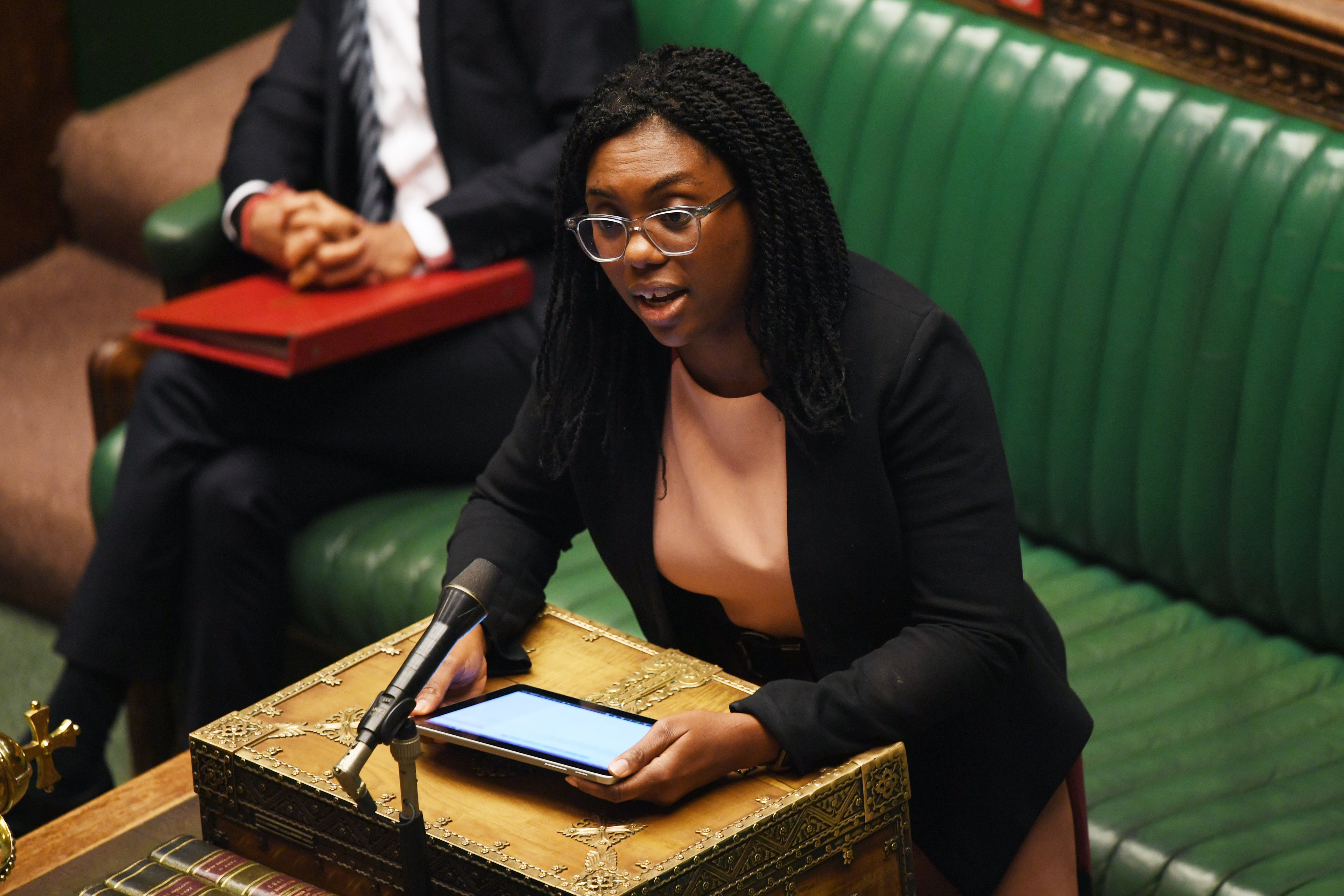
Kemi Badenoch has been the surprise package of the Conservative Party leadership contest so far, making it to the final five when more high-profile names like chancellor Nadhim Zahawi, transport secretary Grant Shapps, former health secretaries Sajid Javid and Jeremy Hunt and attorney general Suella Braverman have fallen by the wayside.
Ms Badenoch, 42, the MP for Saffron Walden in Essex, was among the deluge of more than 50 ministers who resigned in protest at Boris Johnson’s handling of the Chris Pincher affair and declared her candidacy for the party leadership one day after he stepped down.
The former local government minister pledged to cut taxes “to boost growth and productivity”, preached “tight spending discipline” as a way out of the current economic mire and, like Ms Braverman, set out her stall as an “anti-woke” candidate, declaring her opposition to “identity politics”.
Writing in The Times, she also said that Mr Johnson was “a symptom of the problems we face, not the cause of them”.
“People are exhausted by platitudes and empty rhetoric. Loving our country, our people or our party is not enough,” she said.
“What’s missing is an intellectual grasp of what is required to run the country in an era of increased polarisation, protectionism and populism amplified by social media.”
In the second round of voting on Thursday, Ms Badenoch picked up 49 votes, putting her ahead of Ms Braverman (27) and Tom Tugendhat (32) but well behind foreign secretary Liz Truss (64), junior trade minister Penny Mordaunt (83) and the front-runner, ex-chancellor Rishi Sunak (101).
She has already faced calls from supporters of Ms Truss to “recognise the reality of the situation”, give up the ghost and allow her supporters to join the latter’s campaign in a move one source unwisely labelled a “unite the right” manoeuvre, but Ms Badenoch has so far resisted any calls to quit, presumably believing she can still win.
Born Olukemi Olufunto Adegoke in Wimbledon, London, on 2 January 1980, Ms Badenoch’s late father Femi was a GP and her mother Feyi a professor of psychology.
She has two siblings and spent parts of her childhood in Lagos, Nigeria, and in the US before returning permanently to the UK at 16 to complete her A Levels in Morden, paying her way by working in McDonald’s.
Ms Badenoch went on to study computer systems engineering at the University of Sussex, initially working in the IT sector as a software engineer at Logica before taking on a part-time law course at Birkbeck, University of London.
After that, she worked as a systems analyst at the Royal Bank of Scotland Group before pursuing a career in consultancy and financial services, working as an associate director at Coutts, the private wealth manager, from 2006 to 2013 and later as digital director at The Spectator from 2015 to 2016.
She had joined the Conservative Party in 2005 and first stood as the MP for Dulwich and West Norwood in 2010, losing out to Labour’s Tessa Jowell and returning to her career before winning a seat in the London Assembly, at the second time of asking, in 2015.
Again failing to win the parliamentary seat of Hampstead and Kilburn when she challenged for it in the 2017 general election, Ms Badenoch finally secured a place in the House of Commons two years later as Mr Johnson secured his landslide win over Jeremy Corbyn.

In Westminster, she became a member of the powerful 1922 Committee of Tory backbenchers and served Mr Johnson as first parliamentary under-secretary of state for children and families, then exchequer secretary to the Treasury, then minister of state for equalities and finally minister of state for local government, faith and communities.
She was the subject of controversy in April 2018 when The Mail on Sunday reported that it had obtained a video of her confessing in an interview that she had hacked the website of Labour deputy leader Harriet Harman in 2008 and changed it “to say nice things about Tories”, a “foolish prank” for which she duly apologised.
An arch Brexiteer who cites Sir Winston Churchill and Margaret Thatcher among her personal heroes, Ms Badenoch has taken on a number of “culture war” issues, notably denouncing the unchallenged teaching of critical race theory and white privilege in British schools in an address to the Commons in October 2020 and attacking Labour MP Dawn Butler in April 2021 when she criticised a report by the Commission on Race and Ethnic Disparities that concluded Britain was not institutionally racist.
In September that year, Vice News reported that it had obtained an audio recording of Ms Badenoch speaking in 2018 and apparently mocking trans rights issues.
A UK government spokesperson responded by insisting the minister was “working hard to deliver for LGBT people”, that the comment had been “taken out of context” and that she was “making a clear point about striking the balance for equality and fairness when there are multiple and often competing demands between different groups”.
Most recently, Ms Badenoch has clashed with culture secretary Nadine Dorries over the government’s Online Safety Bill, dismissing it by saying, “We should not be legislating for hurt feelings”, drawing an angry response from both Ms Dorries and Labour’s shadow culture secretary Lucy Powell.
She is married to banker and former Conservative councillor Hamish Badenoch, with whom she has two children, and describes herself as a Christian, her maternal grandfather having been a Methodist minister in Nigeria.







